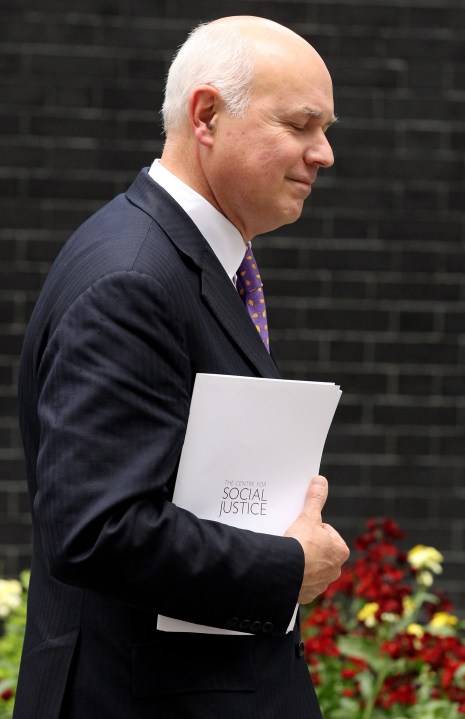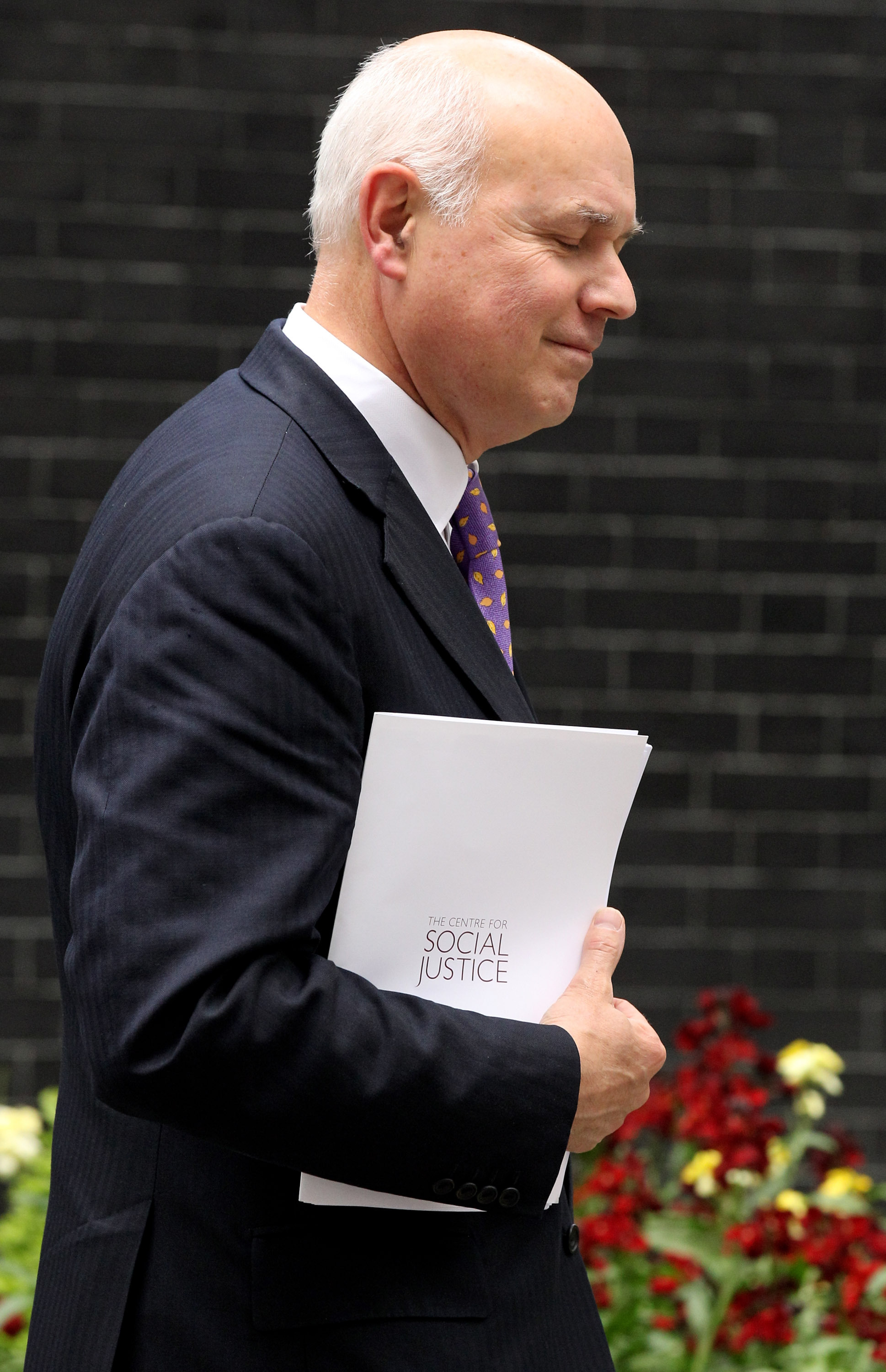 So, Iain Duncan Smith has set out proposals to comprehensively reform of the welfare
system. The goal is to replace 51 benefits with a single and flexible allowance. It has been claimed that this reform would allow people with jobs to retain more of their benefits and ensure that
people who work will always be better off than people on benefits.
So, Iain Duncan Smith has set out proposals to comprehensively reform of the welfare
system. The goal is to replace 51 benefits with a single and flexible allowance. It has been claimed that this reform would allow people with jobs to retain more of their benefits and ensure that
people who work will always be better off than people on benefits.
There are problems with Iain Duncan Smith’s proposals. Fiscal cost is one, and the Work and Pensions Secretary has already clashed with George Osborne over the price of these proposals.
Lowering taper rates to make work more rewarding could mean that more people receive more generous assistance – meaning costs go up. While fiscal cost could be reduced if the government is
willing to reduce the generosity of assistance to some families there are questions over whether the coalition will have the political will to ‘create losers’ in this way.
Fairness is another problem as a consequence of simpler system is that some differences in people’s circumstances will no longer be taken into account when assessing assistance. Further, the
complexity of many families’ living arrangements, and how these arrangements change over time, mean that no government ever has managed to achieve the goal of ensuring that work pays more
than benefits for everyone and at every time.
The list could go on.
Yet while these problems make welfare reform hard, they do not make it impossible. Iain Duncan Smith has done the right thing in setting out a bold goal for where he wants to take the welfare
system. Setting out a bold goal at the beginning of a reform process is the right thing to do because, as Sir Roger Douglas, a former New Zealand Finance Minister, noted at a Reform conference on
eliminating the deficit, when introducing reforms it is vital that politicians start with the right question. The first question must be what policies would be in the interests of the nation. Only
once this question has been answered should the question of how these policies could be sold to the electorate be considered. Otherwise the reform process will begin from a position of compromise
and the chance to undertake sustainable reform will be lost.
A successful welfare reform process should also outline how welfare reform is not simply a technical exercise, but involves redrawing the boundary between the state and individual responsibility.
Since 2000, reflecting an ever-expanding scope of welfare payments, spending on welfare increased even when the economy was growing. There is a need now for Britain to move onto a new path where
welfare provision is no longer an ongoing alternative to work and where individuals, families and communities take greater responsibility for providing for their own future. If Iain Duncan
Smith’s proposals can lead to a debate on how to reduce the over-reach of the welfare system then they may just help restore the public finances and put welfare on a more sustainable footing.
Patrick Nolan is the chief economist at Reform







Comments